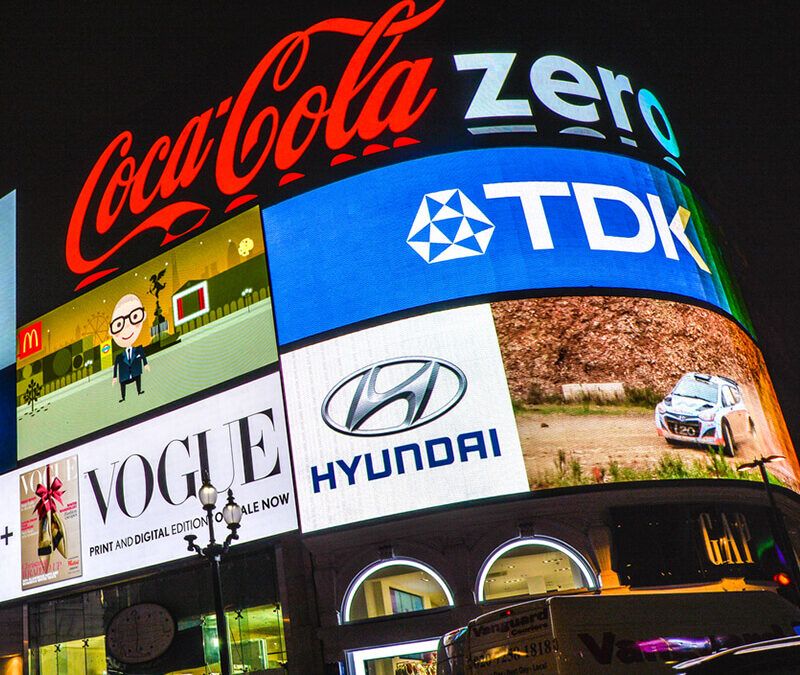What is a brand?
A brand represents the sum of people’s perception of a company’s reputation, advertising, customer service, and logo. When all of these key parts of a business are working well together, the overall brand tends to be healthy. There is a widespread ambivalence about the relevance of branding – especially among startups and small businesses that are looking to find their place in a hostile business environment.
Branding gives your audience a clear sense of purpose and a well-defined roadmap plus a credible voice that people want to listen to. Your brand represents who you are, what you believe in and how you want to be perceived by your audience – that’s why branding is so important to an organization
Why is branding so important for your business?
First of all, it improves recognition
One of the major components of a brand is that iridescent dash of colors we like to call a logo. It takes on the role of the “face” of the business, it’s what people instantly recognize and immediately associate feelings with. A professional logo design is simple enough to be memorable and powerful enough to give the desired impression of your company.
Branding creates trust
As your audience gets to know your business better, they will start trusting you more. To develop that hard to gain trust, you must show them why they should trust you. Building a brand helps determine how your customers perceive the quality of your service.
If you are combining subject matter competence with top-notch customer experience and a well-crafted social media presence your brand will quickly gain a reputation that will spread by itself. You must also rely on the underlying message that every single initiative you take is to delight your customers and encourage them to keep coming back to you.
Brands can also signify your intent
Branding tells your audience that you mean business, and you are here to keep all the promises made by your company- it reflects a bold proclamation that your business makes. Everything your organization exemplifies or stands for should be easily recognizable throughout the brand. If you fail to keep your promises, the customers will shortly notice the gap between what was promised and what was actually delivered. This can have a catastrophic effect on your brand image and the overall well-being of your business.
Branding can help you overtake your competition
In this highly competitive market, how will you stand out from thousands of similar companies that claim to be as good as you, if not better? You have to realize that you are no longer competing locally, with advances in online and offline technology you are fighting for a share on a global market.
Your organization should cater to the needs of a global universal audience – your growth potential is only limited by your imagination. One of the downsides of a global market is the number of competitors you have to outdo in order to consolidate your brand.
By establishing your brand and its credibility, you are giving your customers a valid reason to consider you before turning elsewhere.
A Brand helps to open up new income channels
It’s a well-known fact that people aren’t too patient when it comes to figuring out why they should care about your brand – so it’s your job to create a brand that answers that all-important question on your behalf.
How can you tell your friends about that awesome running shoe that you’ve found incredibly helpful if you cannot even remember the brand? Every organization has to have a credible face – an very often branding the face that engages its potential audience and delights them in every part of their journey and eventually earns their trust. Building a brand identity is one of the best ways of spreading all the good things that come with your branded products. Equally, it is essential that your marketing efforts, logo, social media communication, and reputation are all in harmony with each other to create a resounding impression on your audience.
Branding can help with harnessing the power of emotions
If you give your audience a good enough reason to feel strongly about why they should care about your business, they have a better reason to make purchases from your company. This aspect of branding is important because there are mountains of research that show that purchases are made based on emotions, not logical decisions. Humans are fond of ideas, stories, concepts and even products that touch that covered emotional nerve in them. Also, emotions score heavily over logic when it comes to developing brand loyalty.
Branding becomes a means of making an emotional statement every time your customers stumble across your business or something that reminds them about it.
The human side of branding is something that will always remain universally relevant, especially in times when all we have is a few milliseconds to emotionally engage with our audiences.

